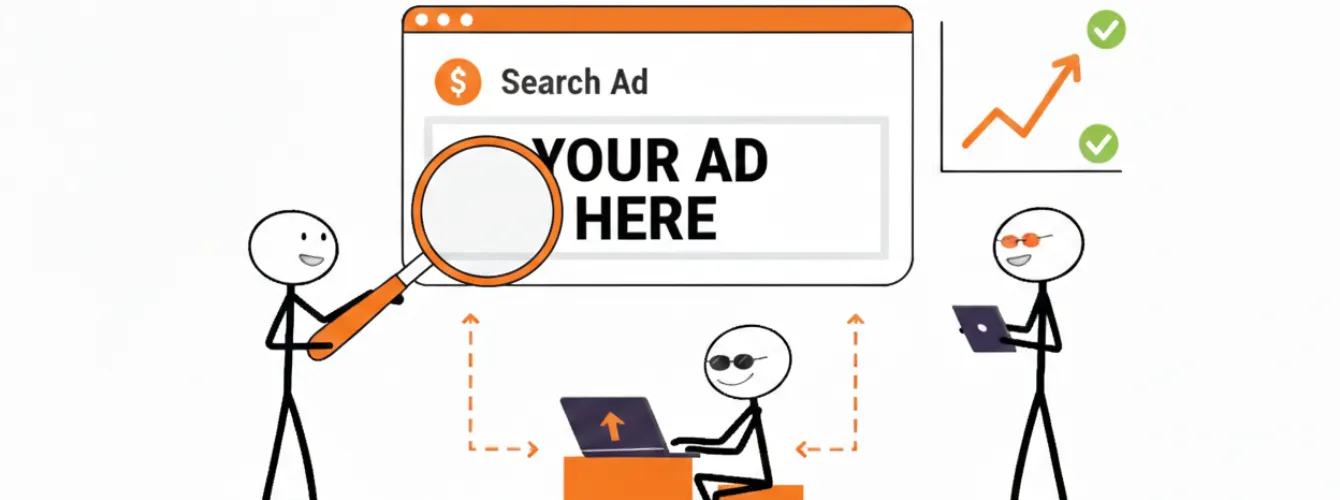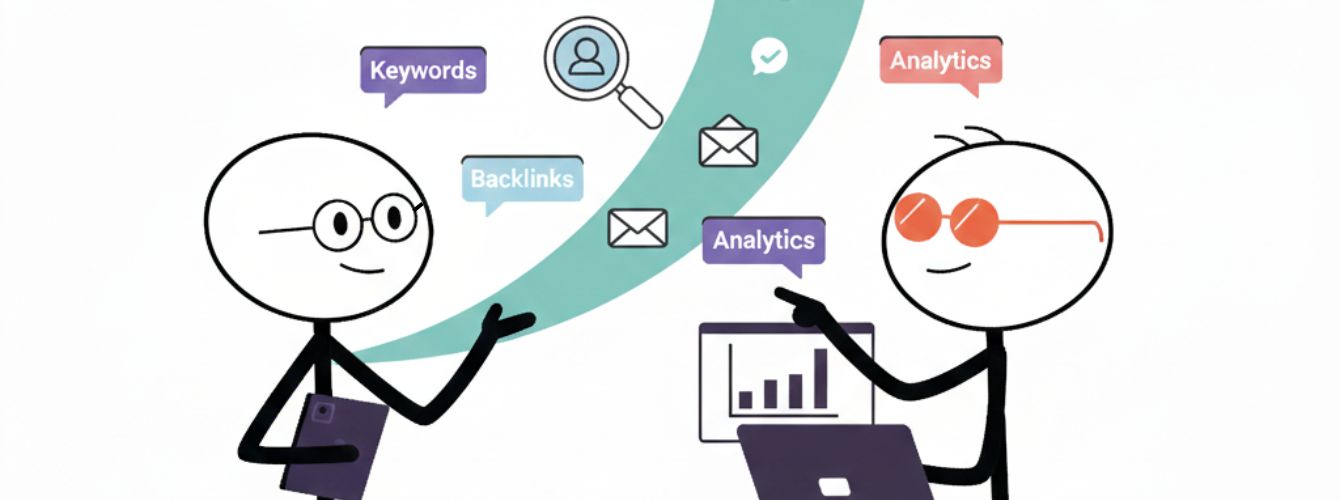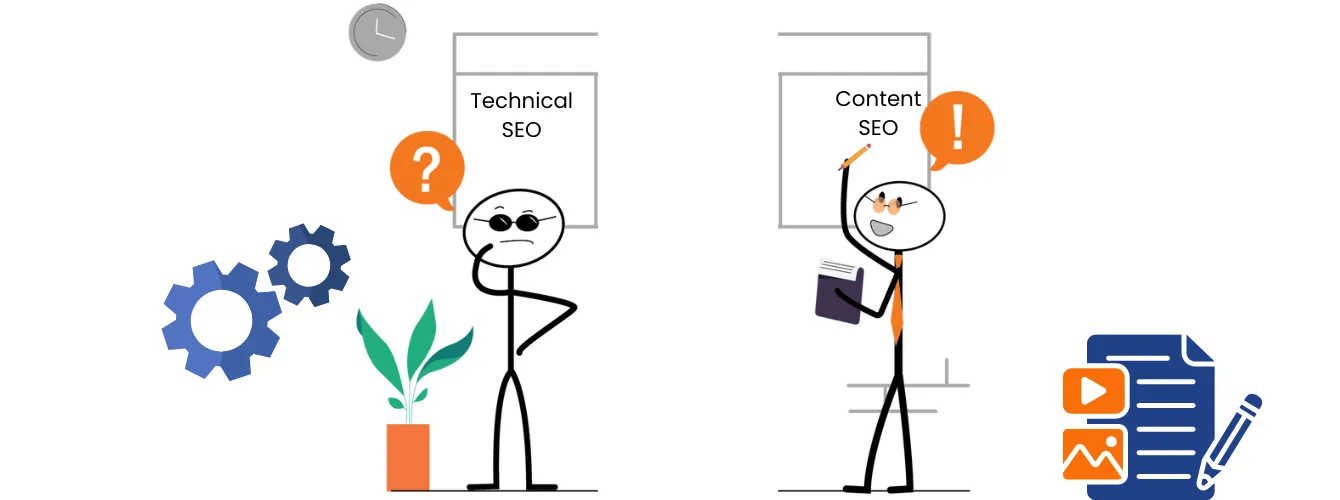In the digital age, marketing has evolved from traditional approaches to online strategies, leading to the emergence of what is now known as digital marketing. For beginners, understanding its types and channels is key to creating effective strategies and achieving success. This guide offers a clear, beginner-friendly overview of digital marketing, covering everything from SEO to social media. Whether you’re new to marketing or looking to refine your skills, this guide will help you get started.
What is Digital Marketing?
Digital marketing is the practice of promoting products, services, or brands using online platforms like websites, social media, search engines, and email. It allows businesses to connect with their audience in real-time, offering personalized and data-driven strategies to engage customers effectively.
According to Rogers, the two fields operate for contacting two separate audiences. “Mass media is a wonderful way of reaching a vast audience, whereas online media can reach specialised ones,” she added. “A good point is some of these channels are more effective than the others depending on who you want to reach.”
Digital Marketing has a modern aspect of the same pillar. In fact, for most businesses, it is adding another means of reaching customers and understanding their behavior. Companies incorporate traditional and modern techniques equally. However, it does create some issues. Its genesis in traditional marketing brought life into mainstream digital marketing with the advent of the internet in the 1990s.
8 Main Types of Digital Marketing
Digital marketing comes in many forms, each designed to boost brand awareness, engagement, and sales. Let’s break down the most effective types of digital marketing that can skyrocket your business.
Search Engine Optimization (SEO)
Search Engine Optimization (SEO) is the process of optimizing a website to involve its visibility and ranking on search engine results pages (SERPs). It involves a combination of strategies and techniques designed to attract organic traffic by aligning with search engine algorithms. Without SEO, even the most well-designed website can fail to get popularity in a highly competitive online world.
Organic search is a traffic powerhouse, generating 53% of all website traffic, as of a 2019 BrightEdge study. With over 8.5 billion searches conducted daily on Google Search, and Google dominating 91% of the global search engine market, the importance of optimizing for search engines cannot be overstated. By leveraging SEO, businesses can tap into this massive audience, ensuring their websites are visible and competitive in the digital space.
SEO helps search engines understand and rank your content so your brand appears on the first page, driving targeted traffic. With 8.5 billion searches happening daily and organic search generating 53% of website traffic, it’s no surprise the SEO industry is projected to hit $122.11 billion by 2028—highlighting its massive impact on digital marketing success.
Pay-Per-Click Advertising (PPC)
Pay-per-click (PPC) is a digital marketing strategy where you pay a fee only when someone clicks your ad, ensuring you drive highly targeted traffic at a controlled cost. Search engine advertising most commonly via Google Ads uses an instant auction to decide which ads show on a results page. Instead of paying just to run ads, you bid for placement and are charged only when users engage.
According to Google, by 2025, PPC will leverage advanced AI to create highly personalized ads, improve targeting, and deliver better results. By continuously monitoring and optimizing campaigns, businesses can maximize their ROI and turn clicks into valuable customers.
Social Media Marketing (SMM)
Social media marketing (SMM), also known as e-marketing, harnesses platforms where users interact and share content to boost brand visibility, drive website traffic, and increase sales. By sparking conversations around your products, services, and culture, you turn everyday social interactions into growth opportunities.
Choosing the right platforms Facebook, X, Instagram, LinkedIn, YouTube, or others depends on your audience and goals. For B2B lead generation, LinkedIn excels; for younger consumer engagement, Instagram ads can be more effective. Bing Ads and Facebook Ads let you laser-target demographics to maximize your reach.
Because SMM thrives on engagement, built-in metrics (likes, shares, comments, click-throughs) help you measure success and refine your approach. Best practices include crafting high-quality content, responding promptly and professionally, maintaining a consistent posting schedule, and knowing when and where your audience is most active.
Content Marketing
Content marketing began in 1895 when John Deere launched The Furrow magazine to teach farmers—proving that helpful content builds trust. Today, brands focusing on content generate three times more leads and spend 62% less than traditional ads (HubSpot, 2023).
Understand your audience’s needs and interests to create content that solves their problems or provides valuable insights. By focusing on what matters to them, you’ll build trust and engagement, making your content resonate more effectively. A trending example is the rise of AI-generated content tools, like ChatGPT, which are revolutionizing how brands create personalized and scalable content strategies.
Great content guides readers to the next step whether that’s a consultation or signup by being clear, relevant, and error-free. With 84% of consumers expecting helpful experiences and 92% of marketers treating content as a top asset, a focused, audience-first strategy wins.
Email Marketing
Email marketing dates back to 1978, when the first mass email from Digital Equipment Corporation sparked a new era of direct outreach. It remains hugely cost-effective delivering an average $36 return for every $1 spent and the industry is on track to hit $9.5 billion in 2024.
Affiliate Marketing
Affiliate marketing originated in 1989 with PC Flowers & Gifts and gained significant traction with the launch of Amazon’s Associates program in 1996. This model allows partners to earn commissions by promoting products through unique, trackable links.
The affiliate marketing industry is experiencing strong growth, with U.S. businesses spending $9.56 billion on these programs in 2023, a figure projected to reach approximately $12 billion by 2025. This growth is part of a broader expansion in the marketing sector, which also offers positive career prospects for advertising and marketing managers.
Mobile Marketing
Mobile marketing began in the late 1990s with the first SMS campaigns and gained real momentum with the arrival of smartphones and tablets.
Brands could suddenly reach customers wherever they were, making marketing truly mobile-first.
This shift marked the start of an era where phones became essential marketing channels.
Today’s mobile marketing includes optimized websites, standalone apps, SMS/MMS messages, and push notifications. In-app ads and social media alerts further enhance real-time engagement and personalization.
Together, these methods create a seamless journey across devices.
Consumers now spend an average of 4 hours 39 minutes on their phones daily, up from 5–6 hours in 2021 for many users. With nine-in-ten U.S. adults owning smartphones, mobile reach is virtually universal.
Global e-commerce is set to surpass $6.3 trillion, highlighting mobile’s central role in digital sales.
To succeed, brands must ensure every touchpoint is mobile-friendly and tailored to user behavior.
Best practices include fast-loading pages, clear calls to action, and personalized messaging.
Mobile marketing is no longer optional—it’s essential for driving engagement and conversions.
Influencer Marketing
Influencer marketing has its roots in early celebrity endorsements, but truly took off with YouTube in 2005 and Instagram in 2010, empowering everyday creators to build loyal followings. Today’s influencers range from mega-celebrities to niche micro-creators, each offering authentic connections with their audiences.
The 2024 Influencer Marketing Report reveals 49% of consumers make monthly purchases due to influencer posts, and 86% buy at least once a year. With the market set to reach $24 billion in 2024, it’s clear this strategy delivers impressive ROI and rapid growth.
Consumers trust influencers over traditional ads because recommendations feel genuine and personalized. Brands leverage this authenticity to showcase products in real-life scenarios, driving engagement and fostering long-term loyalty.
Like affiliate marketing, influencers earn commissions or fees for promoting products via their platforms. However, selecting reputable partners is crucial—one misaligned influencer can damage brand trust, so thorough vetting ensures successful, impactful collaborations.
How to Choose the Right Digital Marketing Strategy
A recent report has shown that almost 50 percent of companies have no clearly defined online marketing strategy to guide their digital marketing effort. This means many market leaders invest time, money, and resources in paying for digital marketing services without an organized approach.
- Before going for any marketing strategies, it is good to step back and think about business objectives. Is it brand awareness, lead generation, sales on the internet, or retention? Defining your goals will help shape how you can adapt your digital marketing strategy correctly.
- Target audience understanding is the foundation of any successful digital marketing. Consider demographics, interests, and behaviors and where the audience spends its time online.
- Evaluate your budget for paid ads and influencer marketing, which require higher investment, while SEO and content marketing offer cost-effective organic growth. Choose strategies that align with your financial resources and goals.
- Digital marketing has various media, each serving a different purpose. Get to know the most effective: SEO, PPC, social media marketing, content marketing, and affiliate marketing so you can formulate a strategy that suits your needs and will generate results.
- After executing your strategy, monitor it using analytics tools like Google Analytics, Facebook Insights, or tailored reports. Data-driven insights enable you to improve your strategy for better results.
Common Mistakes to Avoid in Digital Marketing
Digital marketing isn’t an easy thing to master. With all those convoluted strategies, like SEO, content marketing, and paid advertisement, mistakes can easily happen.
- Going for marketing strategies without the definition of business objectives wasted efforts. A marketing strategy may lack direction and fail when it is not focused on objectives such as brand awareness, lead generation or sales.
- Any digital marketing strategy can be dead on arrival due to a lack of audience understanding. Ignoring the demographic profile, interests, and behavior in the digital space means wasted campaigns and missed opportunities.
- Ignoring budget analysis can mean money wasted on paid advertisements and influencer marketing for opportunities with profitable SEO and content strategies. Financial incompetence will lead to marketing programs that cannot be sustained.
- Having incomplete information on digital marketing channels can bring poor strategies into play. SEO, PPC, social media, content, and affiliate marketing diversions do lead to opportunities lost and a bad performance of the campaigns.
- Ignoring analytics tools like Google Analytics or Facebook Insights means making decisions blindly. Without data-driven insights, improving performance becomes guesswork, leading to wasted efforts and poor results.
Conclusion
With the introduction of digital marketing, it is no longer an option; it is a must-have process for any business that wants to survive in today’s competitive online area. By understanding the core types, from SEO and PPC to social media and email marketing, and leveraging the right channels, you can create impactful strategies that drive visibility, engagement, and growth. Remember, success lies in aligning your efforts with clear goals, knowing your audience, and continuously optimizing based on data-driven insights. Whether you’re a beginner or refining your skills, this guide equips you with the tools to navigate the digital marketing world confidently. Start implementing these strategies today, or partner with a leading digital marketing agency in Lahore, and watch your business soar!







